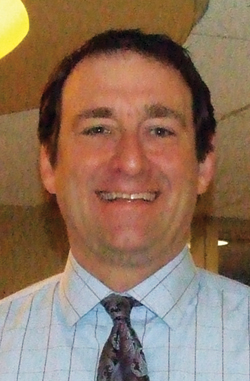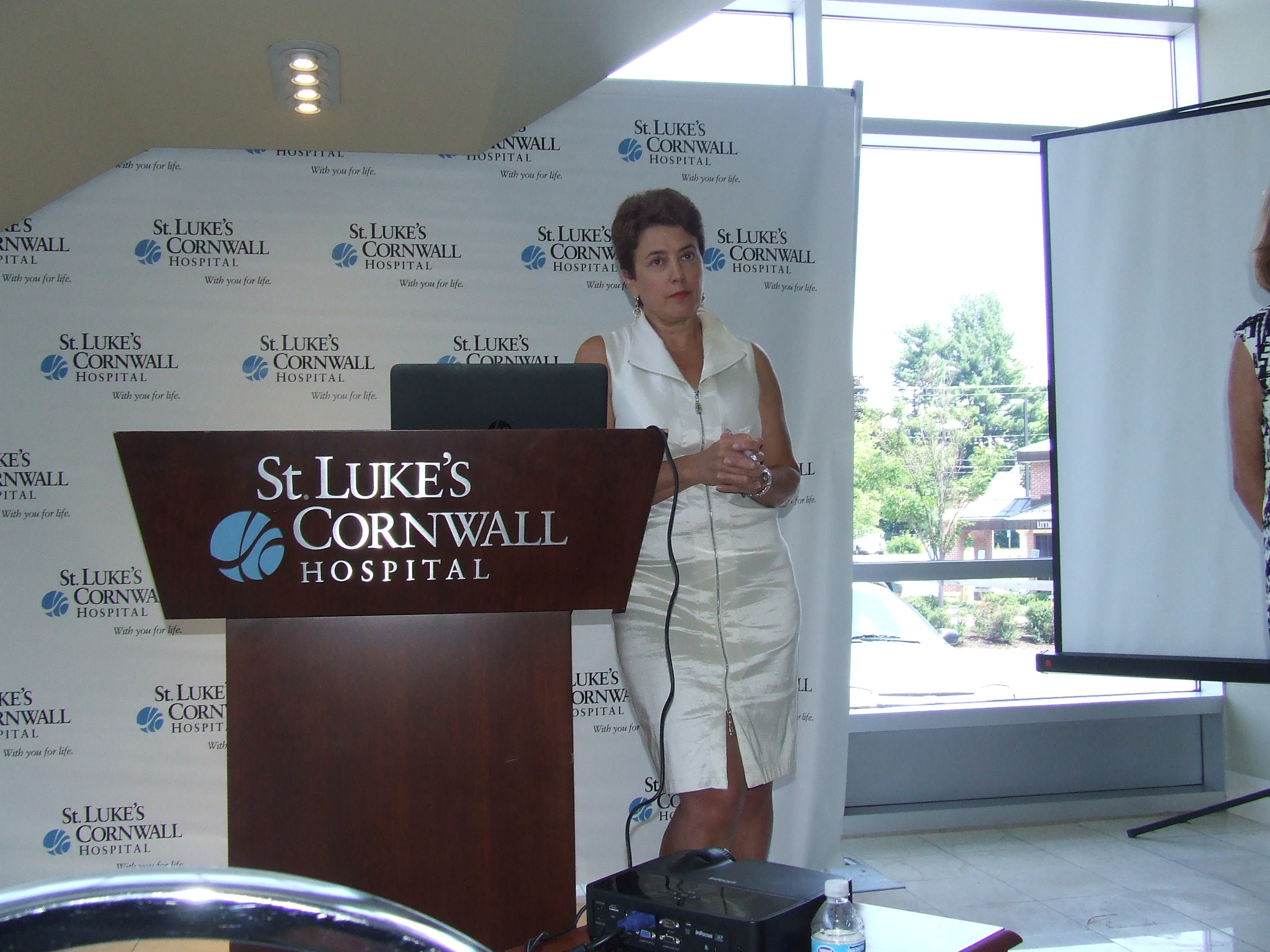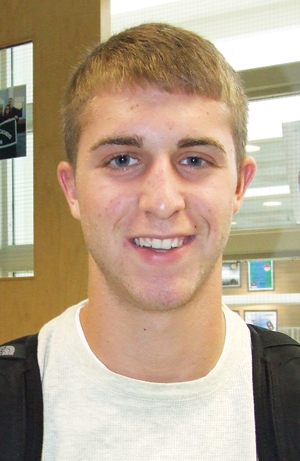

Rob Ross was a junior in college and a computer science major when he went to see his uncle in the hospital. He recalled the visit 30 years later as we sat in a conference room overlooking the City of Newburgh and the Hudson River.
Mr. Ross has been at St. Luke’s Cornwall Hospital since 2001. This is his first year as both president and CEO. The visit to his uncle, and the time he spent with other family members in the hospital, was the catalyst for a career change. He was anxious to improve the way the health care system was managed.
It wasn’t that radical a switch, Mr. Ross said during a March 20 interview. His father had been an administrator at Brooklyn College, and there are a lot of parallels between hospitals and colleges.
The observation was a good straight line for the interviewer. “They’re both expensive,” he said. The hospital CEO laughed. He wasn’t in a combative mood. And that doesn’t seem to be his nature, although he’s big enough to be intimidating.
Like the former CEO, Mr. Ross is well over six feet tall. (Maybe it’s a requirement at the hospital.) He turned 50 last summer, and decided that age wasn’t a reason to drop out of the fast-pitch softball league in Monroe. Nor was marriage! The CEO is due to be wed for a second time in April. She’s from Port Jervis; he lives in Highland Mills. So they compromised on a home in Goshen.
They might not have met if Mr. Ross hadn’t decided to return to New York State a dozen years ago. After working at Johns Hopkins, he was anxious to come back to a community hospital, a place where he could bump into people he knew when he attended local events or went to nearby restaurants.
And it worked out the way he expected. When he goes anywhere with his sons, they’ve learned to expect interruptions. “How long,” they ask themselves, “till Dad recognizes someone he knows?” Daniel, age 20, is now at RPI and Jonathan (19) is at Muhlenberg in Pennsylvania.
The social encounters aren’t limited to his time outside of work. Mr. Ross routinely walks through the hospital, greeting staff members and chatting with patients. Shortly before the interview, he had a prolonged visit with a husband and wife who were in the hospital for separate reasons. He also had an early meeting with staff (7:15 a.m.), where he routinely asked what they were hearing and how they could make things better for patients.
Of course, a CEO is more than a good will ambassador. The challenges in the medical field are escalating. During the interview, Mr. Ross referred to the need to make medical care continuous rather than episodic. At present, people arrive at the hospital when they’re sick, go away when they’re better, and don’t come back until the next emergency. If they were monitored in between, the second visit might not be necessary.
Issues that have attracted more attention are the financial problems that almost all hospitals have experienced. Mr. Ross says that there’s likely to be more partnerships in the future — more cases of hospitals aligning with larger medical centers and sharing resources.
The discussion of economics predictably led to the hot topic of recent months, the continuation of full-time emergency services in Cornwall. Mr. Ross said the Department of Health has been looking at the entire state and evaluating options — is it necessary to regulate urgent care centers? Is it possible to have free-standing emergency departments or emergency rooms that are only open part time?
Mr. Ross said that in conjunction with the study, the hospital sent a letter to the Department of Health last September saying, “This is what we think would work.”
In March, representatives of the hospital were in Albany for a conference with the Department of Health, and subsequent meetings with Sen. Bill Larkin and Assemblymen Frank Skartados and James Skoufis. The talks focused on financial issues and the $8 billion in health care aid that’s coming from the federal government.
During these meetings, Mr. Ross emphasized the hospital’s need for funding and addressed the plans for the Emergency Department. “We are taking a pause on the reduction of Cornwall ED hours,” he said. “We want to take a step back and recalculate.”
The CEO thought the term “pause” was descriptive. It indicated that the hospital would seek input from the community and look at other economic solutions before recommending a change in Cornwall. With tongue-in-cheek, Mr. Ross said he was chagrined when Russian President Vladimir Putin used the word a few days later in a statement to the press. In a more serious vein, Mr. Ross said that new services would be coming to Cornwall.
The interview included a visit to a patient area and concluded with the obvious question — how did he feel about his decision to switch careers thirty years ago.
“Thrilled,” was the answer. “For me this has been a dream come true. I believe the health care system can be much better than it is and here’s the opportunity to make it happen.”



